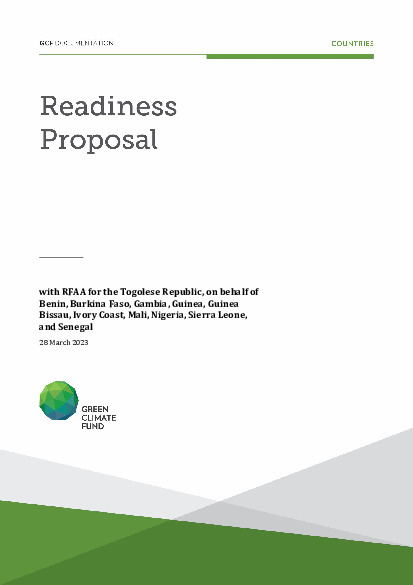Strengthening ECOWAS institutional capacities and Member States' access to climate finance to support the implementation of the agriculture sectoral priorities of the ECOWAS Regional Climate Strategy

Strengthening ECOWAS institutional capacities and Member States' access to climate finance to support the implementation of the agriculture sectoral priorities of the ECOWAS Regional Climate Strategy
This readiness program aims to facilitate the implementation of the Regional Climate Strategy (RCS)1 of the Economic Community of West African States (ECOWAS)2 which supports the efforts of the governments of the ECOWAS Member States ( Benin, Burkina Faso, Gambia, Guinea,Guinea Bissau, Ivory Coast, Mali, Nigeria, Senegal , Sierra Leone, and Togo) to accelerate their access to climate finance in order to consolidate the transition towards low-emission development and climate-resilient agricultural sector (crop production, livestock, fisheries, aquaculture). The agricultural sector, understood in a broad sense, constitutes a pillar of the West African economy, as it contributed in 2020 from 30% to 50% of the Gross Domestic Product (GDP) of the Member States3 and represents the greatest source of income and livelihood for 70-80% of the population 4. Agriculture is the main source of income for women 5in West Africa. This preponderant place in the economy and in the empowerment of women, combined with the impacts of climate change which strongly affect the region and agricultural practices which are still mainly subsistence and rainfed (disruption of the seasons, drought, violent rains, increase in temperatures), make it a highly vulnerable sector, with a particularly strategic role in terms of gender.
ECOWAS Member States are confronted, to varying degrees, to difficulties in defining their needs in the fight against climate change and in transforming their climate action strategies into bankable projects, particularly in the agricultural sector, which is essential for the region.
The gap between the needs for financial support and the flows of funding actually received is considerable in all ECOWAS Member States due to the lack of technical capacities, institutional coordination and engineering of climate projects particularly related to agricultural resilience.